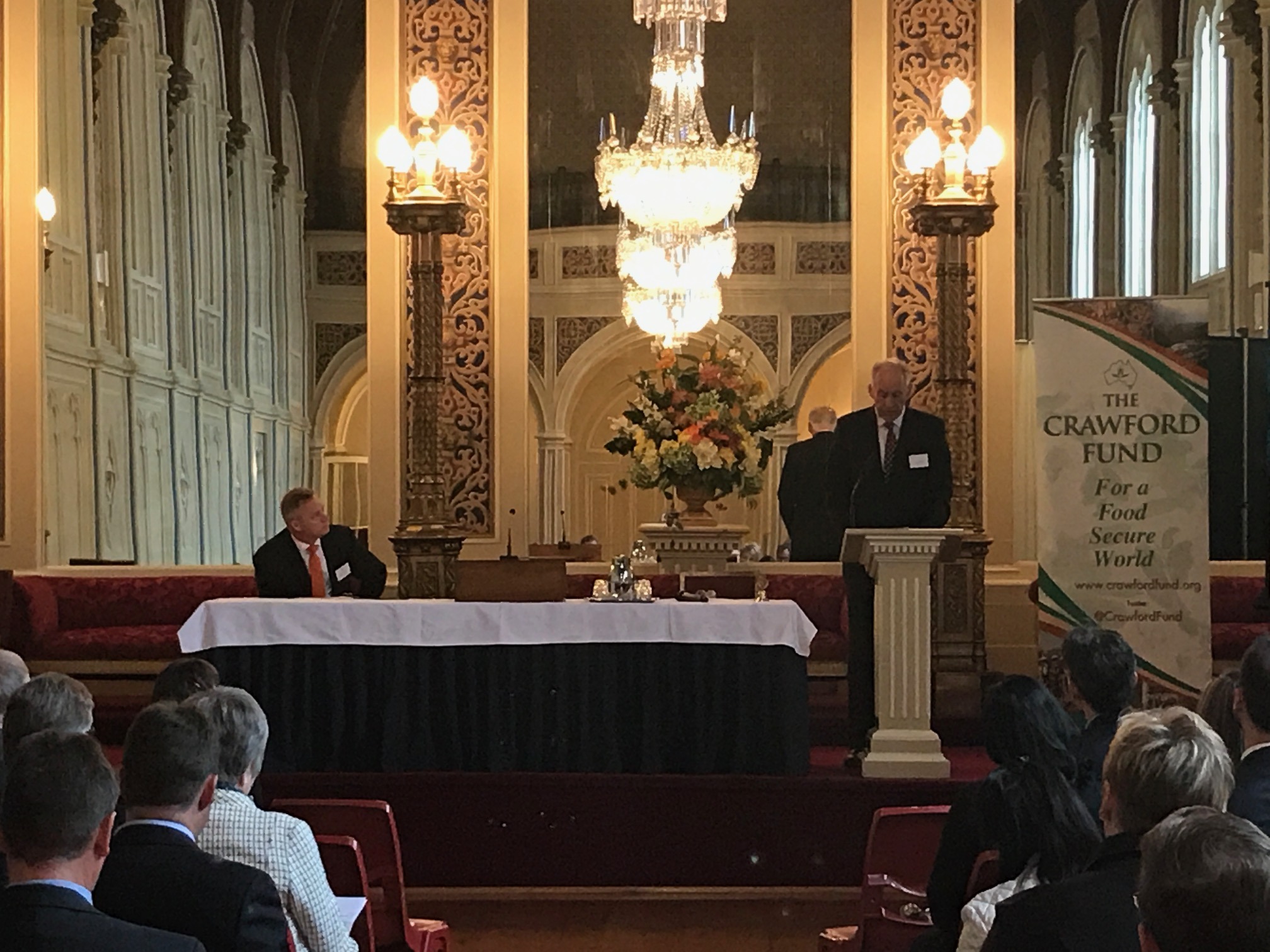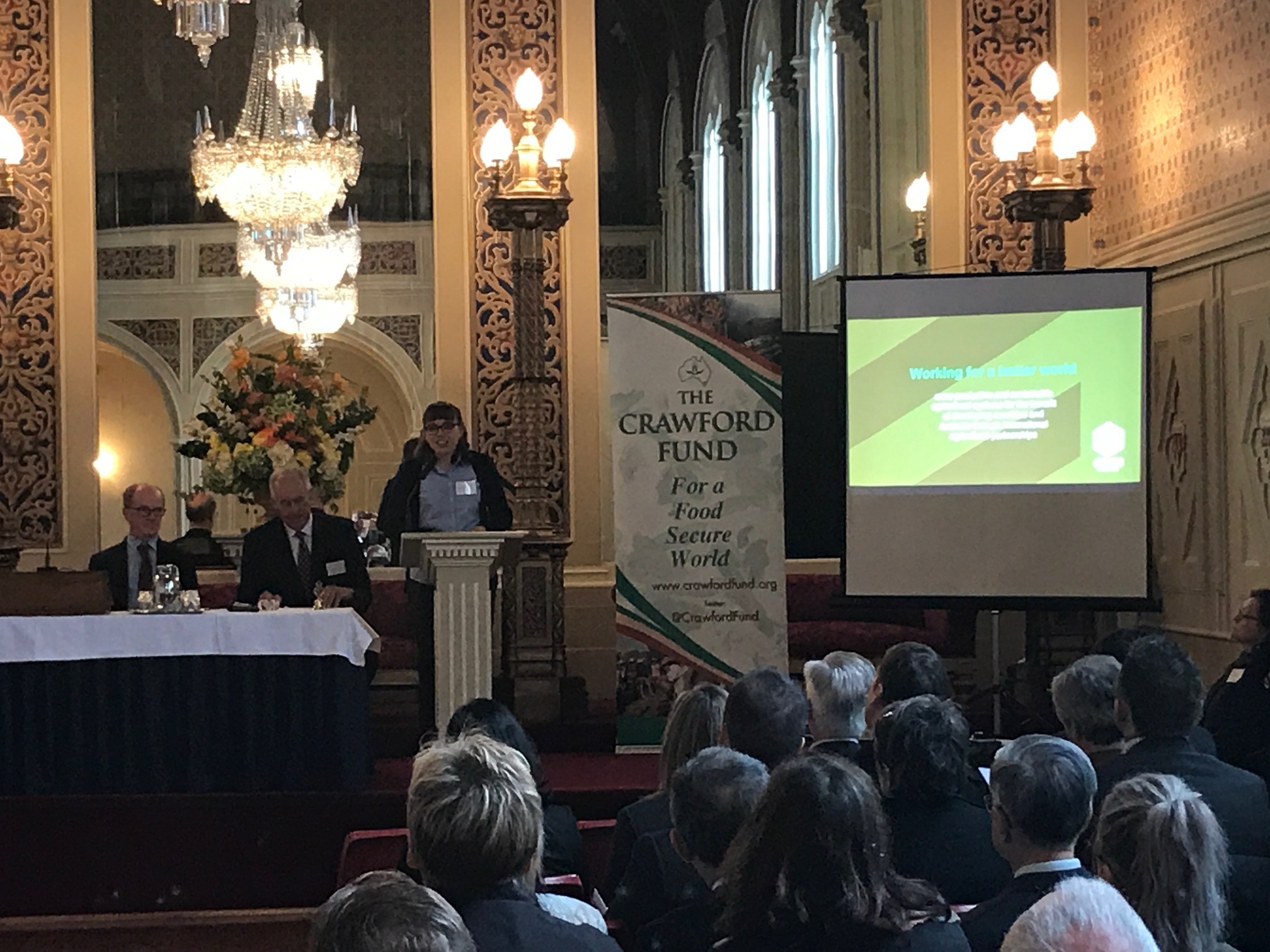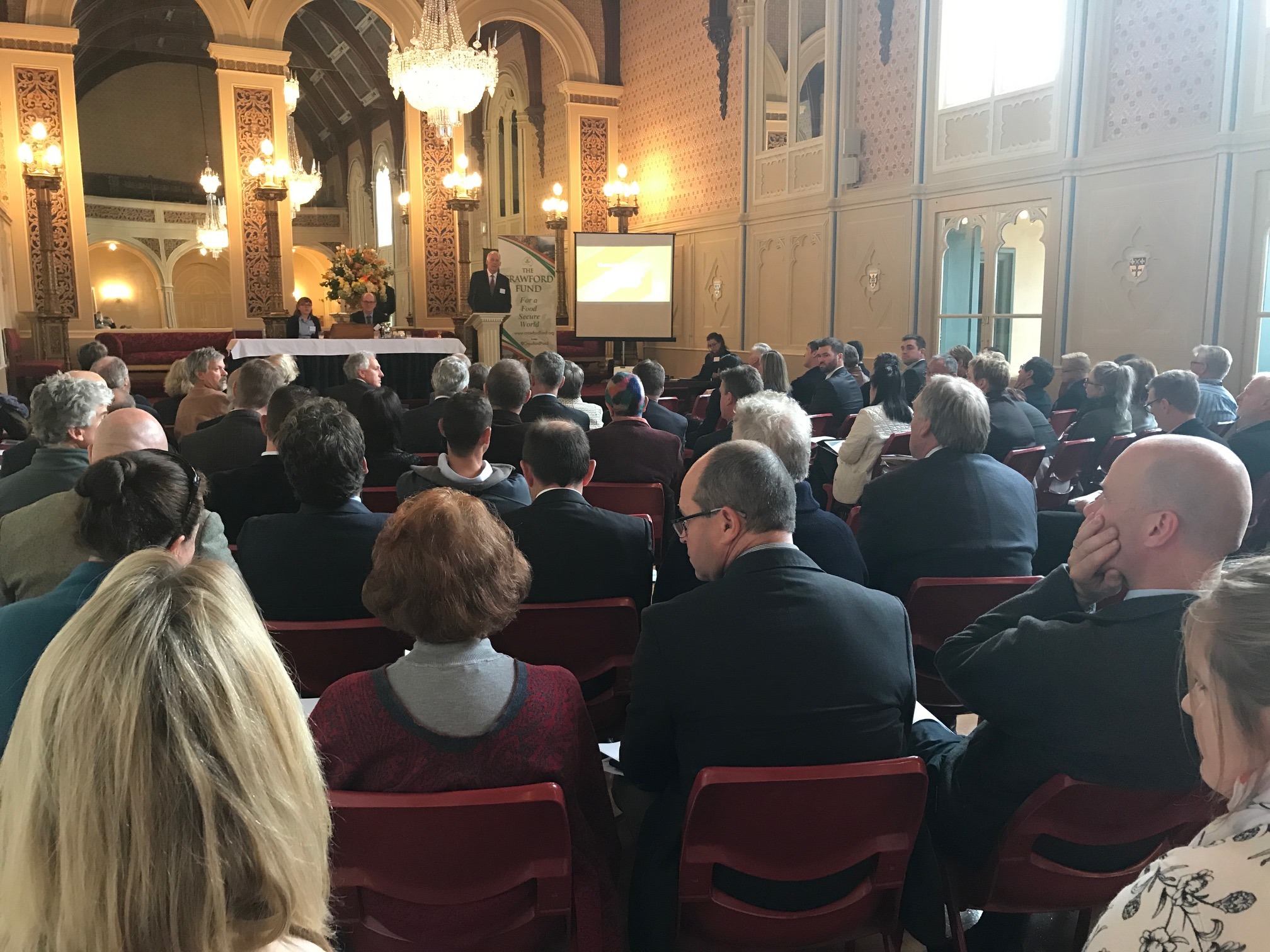

Tasmanian Forum & Networking Reception
The Crawford Fund Tasmania Committee recently held a successful 2017 Forum and Networking Reception, at Tasmania’s beautiful Government House in Hobart, attended by about 100 researchers, students, farmers and policy makers. In a similar fashion to the recent Queensland Forum, the ‘Doing Well by Doing Good’ event focussed on Tasmania’s impacts and benefits in agricultural research. Its aim was to highlight the great work Tasmanians do in international agriculture, the benefits flowing back to Tasmania’s agriculture and researchers, and the subsequent impact in developing countries.

Guests were welcomed by Mr Richard Warner, Chair of the Crawford Fund Tasmania Committee.
“I particularly want to thank the Tasmanian Government and all our partners here today for their support for the work we do and hope you go away with a greater understanding of the ‘Doing Well by Doing Good’ impact achieved,” said Mr Warner.
“Today we will hear of the work that my committee supports around cattle in Vietnam; fisheries in south east Asia and the eastern Pacific; and forest, soils and biodiversity in Papua New Guinea—a diverse range of some of our activities, which confirm Tasmania is doing well by doing good,” he said.
Mr Warner then introduced the Hon Jeremy Rockliff, Tasmania’s Deputy Premier and Minister for Primary Industries, to officially open the event. The Minister noted the exciting opportunities in agricultural R&D in Tasmania, Australia and the world and the need for considerable investment in research, development and extension.
During his keynote address, Dr Peter Horne, General Manager Country Programs, Australian Centre for International Agricultural Research (ACIAR), spoke about ACIAR’s research partnership model and the resulting benefits to developing countries and Tasmania. Dr Horne noted that Tasmania has diverse and highly relevant agricultural research experience for the developing world. He reported that Tasmania has been involved in 15 ACIAR projects since 1983, worth $14m and currenty has projects in Vietnam, Indonesia and PNG worth $3.3m.
Ms Miriam McCormack, Research Program Officer within the Social Science and Economics Cluster for ACIAR, presented ‘From Sandy Bay to Rawalpindi: Stepping out into international research for development’. Miriam is a graduate of the University of Tasmania and we are proud to have her as a previous Tasmanian Committee travel scholarship and conference scholarship awardee.

The program also included a panel discussion of enthusiastic Tasmanian researchers who explained their work in international agriculture and its impact in-country and in Tasmania. Moderated by Sally Dakis of Tasmanian Country Hour, the panelists and their presentation topics were:
Cattle in Vietnam—Tasmanian Institute of Agriculture
-
- Dr Stephen Ives, Research Fellow in Agronomy and Farming Systems
- Dr Lydia Turner, Social Researcher, TIA Dairy Centre
- Ms Elya Richardson, PhD Candidate in Agricultural Education
Fisheries in SE Asia and the Western Pacific—CSIRO:
-
- Mr Craig Proctor, Fisheries Scientist
- Dr Will White, Senior Curator, Australian National Fish Collection
Forest soils and biodiversity in PNG—Forest Practices Authority:
- Dr Sarah Munks, Manager Biodiversity
- Dr Peter McIntosh, Manager Earth Sciences and Cultural Heritage
The next session involved Professor Holger Meinke, Director of the Tasmanian Institute of Agriculture and Head of the School of Land and Food at UTAS, and also has an international role as one of the experts advising the CGIAR. Prof Meinke spoke about the university’s opportunities in international agriculture. Dr Neville Mendham, Coordinator of the Tasmanian Committee, discussed the Fund’s work in Tasmania and you can read more in the Crawford Fund in Tasmania brochure. Dr Denis Blight, Chief Executive Officer of the Fund, gave thanks and closed the event.
“Aid serves Australia’s national interests if it has a laser-like focus on the things that matter. Agricultural research delivers both global food security and thereby global stability; and it benefits Australia—this is ‘doing well by doing good’ or put another way, a food secure world is a good world and is good for Australia,” said Dr Blight.
Media coverage for the event included interviews on ABC Radio with our Tasmania Chairman, Dick Warner and ACIAR’s Peter Horne (at around 12mins in), and in The Examiner and Tasmanian Country.
A RAID networking evening, held at the University of Tasmania, followed the Tasmania ‘Doing Well by Doing Good’ event.
